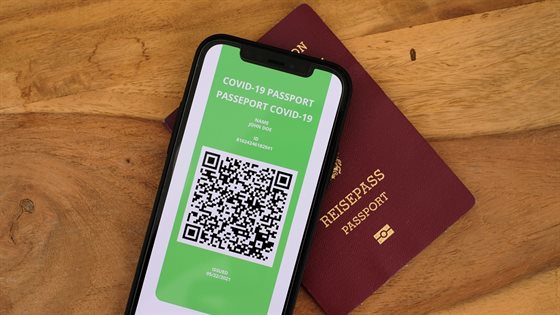With pubs and restaurants preparing to reopen for punters as lockdown eases in the coming months, talk has turned to whether customers should have to prove they have been vaccinated to gain entry and get served.
Discussions around ‘vaccine passports’ for international travel have been ongoing for some time, however a new debate has begun around the idea that landlords could be given powers to bar anyone from their premises if they have not had a Covid jab, after Prime Minister Boris Johnson warned it could be a possibility.

(Image: Lucas/Unsplash)
In a new survey of 1,104 people across the UK conducted by academics from the Centre for Urban Research on Austerity (CURA) and Institute for Applied Economics and Social Value (IAESV) at De Montfort University Leicester (DMU), almost half (45%) of those asked said they did not agree that vaccine passports should be a requirement for pubgoers or diners, compared to 34% who agreed it was a good idea.
By comparison, the survey showed that people were much more supportive of vaccine passports for a holiday abroad, with 70% agreeing proof of vaccination should be a requirement before travelling internationally.
“Whether someone would personally have the vaccine is very important for explaining their attitudes to a vaccine passport. But attitudes to vaccines and vaccine passports are different, with much more disagreement between people about whether vaccination passports should be introduced,” said Professor Jonathan Davies, Director for CURA.
The survey also revealed that people are split on whether vaccine passports should be required for long distance travel in the UK (37% disagreeing versus 42% agreeing), while a larger proportion are heavily against the idea that vaccine passports should be introduced to permit people to enter a supermarket (70% disagreeing).
Professor Davies has been working alongside Professor Edward Cartwright and Dr Jonathan Rose throughout the pandemic, carrying out surveys across the UK to research the impact of the pandemic on people’s trust, behaviour, attitudes to finance, and healthcare.
Professor Cartwright said: “Our findings show that social trust is very important but not in the way one might expect. The less social trust someone has, the more in favour of vaccine passports they are, so there is an individualistic element here.
“Age is also very important. We found that older people are more in favour of introducing vaccine passports. Interestingly, we find no effect of ethnicity once other factors have been controlled for.”
RELATED NEWS
Fewer people following lockdown guidance since Dominic Cummings story broke
British people show support for government spending during Covid-19 crisis
Study to examine impact of Covid-19 on homeless children
The research also revealed that trust in government nor in health workers is significant when it comes to peoples’ views on vaccine passports. But trust in scientists is very important.
Dr Rose said: ‘’Our analysis showed that trust in scientists is a very significant factor in whether people intend to get a vaccine and that follows through into preferences for the vaccine passport.
"Trust in other influential figures, such as MPs, local councillors, newspaper journalists and TV and radio presenters does not show up as statistically significant at all. So the role of scientists and of the government in fostering trust in science is vital.”
The idea of asking pub and restaurant-goers to show a vaccine certificate was brought up during a House of Commons Liaison Committee hearing where the Prime Minister said it “may be up to individual publicans. It may be up to the landlord”.
However the concept sparked an immediate reaction from Tory lockdown rebels, including Steve Baker, deputy chairman of the Covid Recovery Group, who said the Prime Minister “began to tread a dangerous path when he opened the door to domestic Covid certificates”.
A review of vaccine passports is being led by Cabinet Office Minister Michael Gove, and could lead to venues asking people for proof of vaccine or a recent negative Covid-19 test.
Posted on Friday 26 March 2021